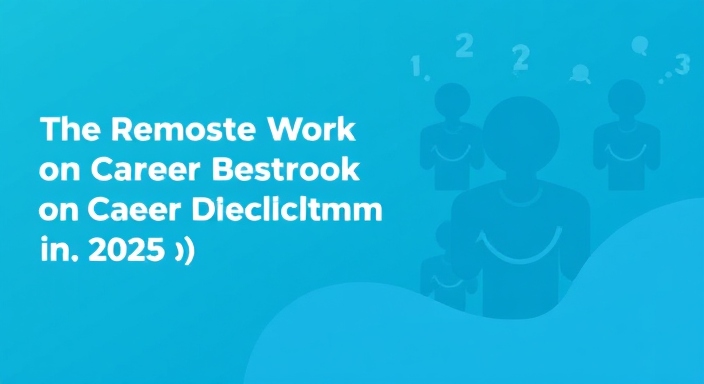
Introduction: A Paradigm Shift in Career Growth
Remote work has redefined the professional landscape, offering unparalleled flexibility and new challenges. While it empowers individuals to shape their work-life balance, its influence on career progression raises critical questions.
Keywords: “remote work career development,” “remote job challenges,” “remote work success strategies.”
Access to Global Opportunities
- Increased Job Market Reach: Remote work eliminates geographic constraints, allowing professionals to apply for positions across the globe.
- Skill-Based Recruitment: Employers prioritize skills over location, giving candidates with niche expertise a competitive edge.
- Real-Time Example: A software developer from Brazil secured a role with a Silicon Valley startup, thanks to remote-first hiring policies.
- Challenges: Competition intensifies as talent pools expand, requiring job seekers to stand out with exceptional resumes and portfolios.
- Solution: Platforms like LinkedIn and Turing.com help candidates highlight their skills and land global roles.
Evolving Skill Sets for the Remote Era
- In-Demand Skills: Remote roles often require proficiency in digital collaboration tools like Slack, Microsoft Teams, and Asana.
- Soft Skills: Adaptability, communication, and self-discipline are critical for success in virtual environments.
- Learning Opportunities: Online platforms such as Coursera and Udemy offer courses tailored to remote work skills.
- Example: An HR manager adapted to remote workflows by mastering virtual onboarding processes via LinkedIn Learning.
- Tip: Regularly upskill to remain competitive in the evolving job market.
Challenges to Career Growth in Remote Settings
- Limited Visibility: Employees working remotely often miss out on casual networking opportunities.
- Reduced Mentorship: The absence of in-person interactions makes it harder to build mentor-mentee relationships.
- Perceived Bias: Some managers may unconsciously favor in-office employees.
- Solutions:
- Proactively Network: Attend virtual conferences and participate in online forums.
- Leverage Technology: Tools like Microsoft Viva can enhance employee engagement and visibility.
- Set Clear Goals: Regularly discuss career aspirations with supervisors to align efforts.
Remote Work’s Influence on Leadership Opportunities
- Emerging Leaders: Remote work creates avenues for leadership by focusing on results over physical presence.
- Example: A marketing professional in India led a global team by demonstrating exceptional organizational skills and results.
- Virtual Leadership Skills:
- Effective delegation and accountability.
- Virtual team-building activities to maintain morale.
- Strategic use of analytics to measure team performance.
- Tip: Volunteer for cross-functional projects to gain visibility and leadership experience.
Balancing Flexibility and Career Growth
- Work-Life Harmony: Remote work offers the freedom to balance professional and personal responsibilities.
- Pitfalls: The same flexibility can lead to overwork if boundaries are not well-defined.
- Strategies:
- Use time management tools like Clockify or Todoist.
- Set clear work hours and communicate them to your team.
- Take regular breaks to maintain focus and avoid burnout.
- Example: A data analyst maintained work-life balance by scheduling focused work sprints and personal downtime.
Building a Strong Remote Career Network
- Expand Connections: Use LinkedIn to connect with professionals in your field.
- Virtual Events: Attend webinars, workshops, and online networking events.
- Case Study:
- Professional: A freelance graphic designer.
- Challenge: Limited networking opportunities.
- Solution: Participated in virtual design meetups and secured high-value clients.
- Outcome: A 50% increase in annual income within a year.
Case Study: Adapting to Remote Work Challenges
Company: A global IT services firm.
Scenario: Transitioned to remote work during the pandemic.
- Initial Challenges: Decreased team collaboration and employee disengagement.
- Solution:
- Introduced bi-weekly virtual coffee sessions to foster camaraderie.
- Deployed employee engagement tools like Microsoft Viva for better collaboration.
- Result: Increased productivity and a 20% improvement in employee satisfaction scores.
Conclusion: Embracing Remote Work for Career Growth
Remote work offers immense potential for career advancement, but it requires strategic planning and proactive effort. By embracing digital tools, upskilling, and maintaining strong professional networks, individuals can thrive in the virtual workspace.
Call-to-Action
How has remote work shaped your career? Share your experiences, challenges, and success stories in the comments below!